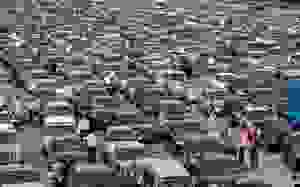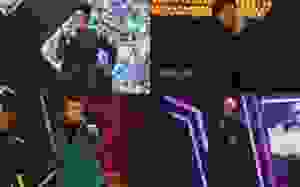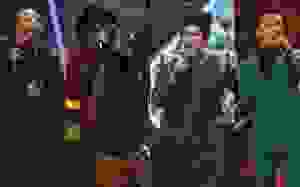Integral Human Development A Book By Paul Dass Sj
This book by Jesuit priest Paul Dass has recently been published: Integral Human Development: History and Memory – A Local Church Chronicle
Read the foreword by Kuala Lumpur Archbishop Julian Leow:
Remembering our past makes our present strong. A strong present helps us build a strong future.
This book by Fr Paul Dass, SJ about the history of the practice of integral human development in the life of the local Church helps us to remember our past so as to build our future.
The history of this practice goes all the way back to the Seventh Century when the Church first took root upon the shores of the peninsula.
By extensively sketching out this period of the early history of the local Church, Fr Paul shows us that the idea of integral human development is very much rooted in the doctrine of the perfect divinity and perfect humanity of Christ, which was the main debate of this period in the life of the Universal Church, and, for this reason, constitutes a Christological point of departure for our faith-understanding of the practice of human development.
However, to claim this past as part and parcel of our heritage, we have to think ecumenically, synodally and developmentally, at all times. These three themes underline the progression of the story that unfolds in these pages.
Hence, through the stories of St Francis Xavier, the first Protestant missionaries, the MEP Fathers and the first religious congregations and further down the road right down to our own times, the author reminds us to remember to think ecumenically if we are to reclaim our local Church heritage as comprehensively as possible, to think synodally if we are to strengthen our identity as local Church and to think developmentally if we are to continue to witness to our faith through a form of action that makes a difference in the lives of people, especially the poor, in a multi-religious and multicultural society.
The pages of this book celebrate the lives of many fellow Catholics, especially the laity and the youth who, in more recent times, have been the backbone of the practice of integral human development in the life of the local Church.
A deeper search into this more recent history shows how Catholic youth, whether in the parishes, the workplace or the university, have had a crucial role to play in the most important socioeconomic and political concerns of our society at large. The pages of this book celebrate them and invite us to reclaim them as part of our heritage.
The pages of this book, furthermore, celebrate the methodologies that underlay the practice of integral human development in the history of the local Church.
Building upon the doctrinal basis of the perfect humanity of Christ – which is directly connected to us through the Church of the Seventh Century in the peninsula – it explores the practice of consciousness examen, which is built upon the ancient practice of the examination of conscience, down to the see-judge-act method and finally to the pastoral spiral.
These methods have been, in one way or another, very central to helping many members of the local Church find a practical way to put their faith into practice and to place themselves at the service of the poor.
The pages of this book, finally, celebrate the practice of integral human development in the life of the local Church by casting it against the life of the Lord himself.
At the heart of the story of the life of the Lord is his passion, death and resurrection. The story of the life of the local Church has had its many moments of life, death and resurrection, too – particularly in its struggle to defend, uphold and promote the integral value of human development in the face of numerous challenges and uncertainties.
But, cast as it is against the storyline of the life of the Lord, the local Church can be sure that it, too, will partake of the fullness of the resurrection as surely as day follows night.
The final chapters of this book, in fact, propose a storyline, a plot and an interpretation that firmly suggest that the local Church has indeed been able to most publicly proclaim its faith in the Risen Lord precisely because of its engagement at the frontiers of integral human development. This is the crown and climax of this chronicle.
I concur with the intentions of the author that the many stories in this book, cast within a single storyline, should be catechetically communicated to the youth and young adults of our local Church.
Our young people have a rich patrimony to receive. And, by receiving well and deeply, they will, in turn, communicate the depth of their knowledge and understanding to the next generation of Catholics for having practised it well and methodically themselves.
In that way, we can be sure that the future augurs well for the local Church and promises to be strong. This is our wish, and for this reason, I warmly endorse this book – a labour of love – by Fr Paul Dass, SJ.
With my blessings,
+ Most Reverend Julian Leow Beng Kim, DD
Metropolitan Archbishop of Kuala Lumpur
And read the blurbs on the back cover as well:

Artikel ini hanyalah simpanan cache dari url asal penulis yang berkebarangkalian sudah terlalu lama atau sudah dibuang :
https://anilnetto.com/religion-and-ethnicity/christianity/integral-human-development-a-book-by-paul-dass-sj/
 PING BABAB : Raksasa Aggregator Malaysia
PING BABAB : Raksasa Aggregator Malaysia






















